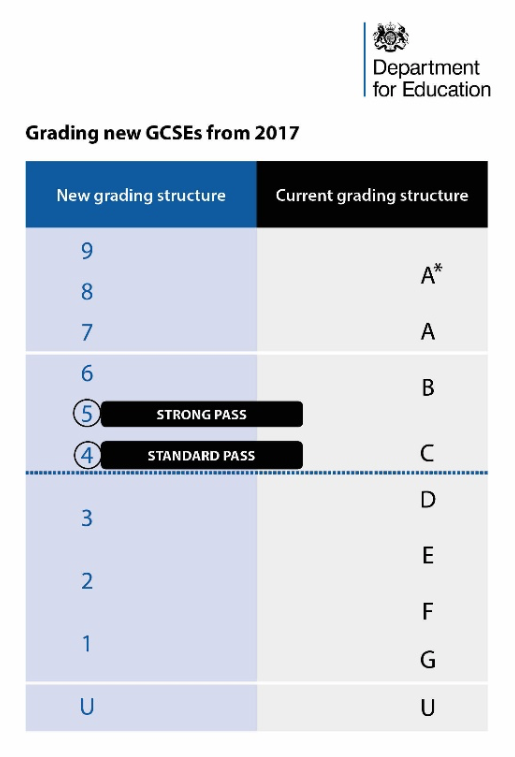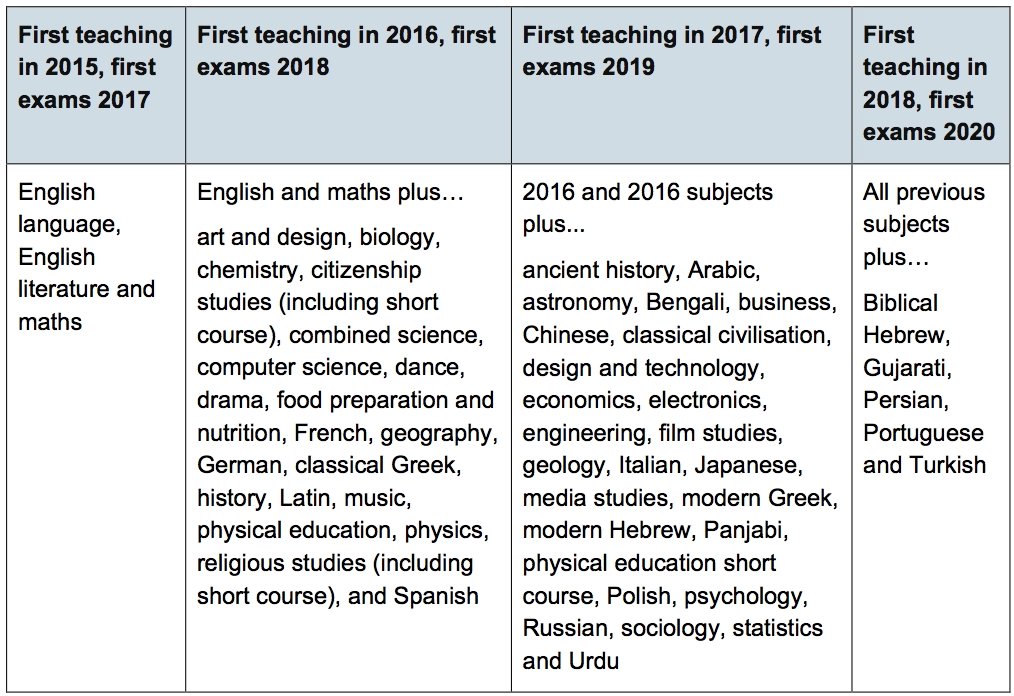GCSE Factsheet Parent PDF Download
Is your child studying for GCSEs?
If so, or if they will in the future, you might be interested to know that GCSEs in England are changing. The courses and exams have been changed to ensure that young people have the knowledge and skills they need to succeed in the 21st Century. The new GCSEs will ensure that students leave school better prepared for work or further study. They cover more challenging content and are designed to match standards in the strongest performing education systems elsewhere in the world.
- 1 GCSEs in England will have a new 9 to 1 grading scale, to better differentiate between the highest performing students and distinguish clearly between the new and old exams.
- 2 Grade 9 is the highest grade and will be awarded to fewer students than the current A*.
- 3 The new GCSEs are being rolled out over the next few years, starting with English language, English literature and maths exams in 2017.
- 4 The old and new GCSE grading scales do not directly compare but there are three points where they align, as the diagram shows:
- The bottom of grade 7 is aligned with the bottom of grade A;
- The bottom of grade 4 is aligned with the bottom of grade C; and
- The bottom of grade 1 is aligned with the bottom of grade G.
- 5 Although the exams will cover more challenging content, this won’t mean your child gets a lower grade than they might have under the old system. Ofqual, the exams regulator, will ensure that broadly the same proportion of students will get grades 1, 4 and 7 and above in any subject as would have got grades G, C or A and above respectively in the old system, other things being equal.
- 6 The Department for Education recognises grade 4 and above as a ‘standard pass’; this is the minimum level that students need to reach in English and maths, otherwise they will need to continue to study these subjects as part of their post-16 education. There is no re-take requirement for other subjects.
- 7 Employers, universities and colleges will continue to set the GCSE grades they require for employment or further study. We are saying to them that if a grade C is their current minimum requirement, then the nearest equivalent is grade 4. A* to G grades will remain valid for future employment or study.
- 8 For measuring school performance, we will publish the proportion of students achieving a grade 5 and above. The Department for Education recognises grade 5 and above as a ‘strong pass’, a benchmark in line with the expectations of top performing education systems around the world – this will be one of the headline measures of school performance. We will also publish the proportion of students achieving a grade 4 or above for transparency and to enable schools to show their students’ achievements.
- 9 Most GCSEs taken by students at schools in Wales and Northern Ireland will continue to be graded A* to G. The grading scales for AS (A to E) and A levels (A* to E) are not changing.
When is this happening?
- The first exams for the reformed GCSEs in English language, English literature and maths are being held in summer 2017, with results in August 2017.
- All GCSE subjects will be revised by 2018 and examined by 2020.
- Between 2017 and 2019, GCSE exam certificates will have a combination of number and lettergrades. By 2020, exam certificates will contain only number grades.
© Crown copyright 2017


